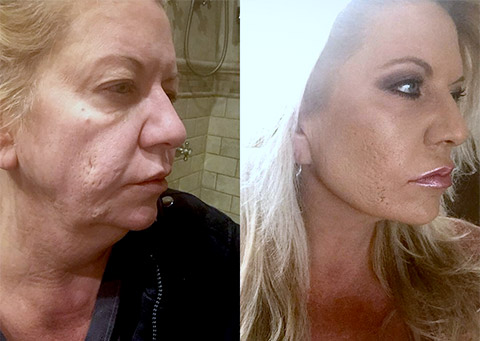
Drugs and medicines go through extremely rigorous testing regimes before they reach a target test subject. However, even with all these laborious testing methods and strict standards, there are certain cases in which drugs and medicines can produce harsh side effects, or are ineffective.
In the UK, if you would like to file a product liability lawsuit for damaged medications and drugs, the product must have been put into circulation after March 1988. To establish negligence, it must be proven that the defendant owed a duty of care to the claimant, and that the duty was breached. The Consumer Rights Acts of 2015 provides consumers with specific statutory rights— that all good supplied to them must comply with the description applied to them, and must be of satisfactory and standard quality.
The different types of drugs that have led to a range of debilitative conditions such as heart attacks, birth defects, blood clots and more include, but are not restricted to:
- Actos
- Invokana
- Opiod
- Pradaxa
- Risperdal
- Taxotere
- Uloric
- Vioxx
- Zofran
- Zostavax
- Zantac
When these drugs have side effects that are not disclosed to the consumer, victims can sue for product liability. Product liability refers to the liability of a seller of a product that, due to some defect, causes harm to the user, bystander, or purchaser.
What Are The Types of Product Liability Claims?
In the case of drug related product liability claims, there are three different types:
Defectively Manufactured Pharmaceutical Drugs
This category includes those drugs that have been manufactured improperly, or have somehow become tainted. Sometimes, errors occur when a manufacturer is making a pharmaceutical drug. Typically, these errors affect only a few specific batches of the drug, rather than the whole pharmaceutical line. These occur for a number of reasons such as putting the wrong ingredient in a pill during the manufacturing process, incorrect labelling, improper storage, and more. In short, this process involves any situation in which the drug has become tainted from the factory to the point where the consumer receives the drug, which may harm the consumer.
Dangerous Side Effects
Many drugs have some serious side effects that consumers need to be made aware of. It’s the duty of manufacturers to warn the public of these side effects, and the duty of doctors to go over these side effects. Patients can then choose to start using a certain drug and deal with the side effects, or choose another drug that has less fatal side effects for their underlying conditions. When consumers aren’t informed of these side effects, they lose the opportunity to make an informed choice.
These claims can be placed when a certain pharmaceutical drug, although properly manufactured, has led to some intense side effects which have caused injury or illness. Most of the time, these cases involve drugs that have been in the market for quite a while, before the public was informed that they can lead to or increase the risk of serious injuries, such as heart attacks. When this happens, victims are able to claim that he pharmaceutical companies knew about the side effects, but failed to disclose them, causing their consumers harm. If this is proven, victims can receive more money in the form of punitive damages.
False Marketing
These product liability claims involve those medications or pharmaceutical drugs that the victim believes are falsely marketed. This refers to the warning, instruction or the recommendation related to consuming a certain drug. This includes anything from not disclosing the side effects of a drug to failure to provide adequate instructions regarding proper usage and care. Often referred to as a “bad advice” claim, this lawsuit can involve the manufacturer who made the drug, the pharmacist who sold the drug, and the doctor who recommended the drug.
Who Are The Potential Defendants?
Under Section 2 of the CPA, liability principally rests on the manufacturer, importer, or own brander. Everyone that comes under the “chain of distribution” of the drug can come under potential defendants.
Manufacturer
The manufacturer of the drug refers to the pharmaceutical company that made and distributed the drug. Typically large companies, pharmaceutical companies often hold monopolies in a huge market due to the technical challenges involved in developing and testing new drugs. Although these companies have highly trained teams of lawyers, they can be faced with product liability claims.
Testing Laboratory
The drug that the consumer received often goes through a rigorous screening and testing process, before it makes its way into the market. Testing laboratories can be included as defendants in a product liability lawsuit, especially if these labs are independent of the manufacturer.
Pharmaceutical Sales Representative
Drug companies usually make use of pharmaceutical sales representatives who meet with doctors and the medical community, recommending and touting drugs to them. These representatives may be liable if they recommended a drug that injured or caused harm to the victim.
Doctor or Physician
The doctor or physician who recommended the drug to the victim can be liable for the injuries since they are a part of the chain of distribution of the drug. The inability to warn a victim of the side effects of the drug can is also known as medical malpractice, especially if doctors fail to inform the victim of adequate instructions regarding proper use of the drug.
Hospital, Clinic or Pharmacy
Any company, including hospitals and clinics or pharmacies, often the final point in the chain of distribution can be liable for the injuries caused by a drug.
Hare | Wynn, Newell & Newton has a team product liability lawyers that can help you pursue your lawsuit. Serving the people since 1890, their clients are their first priority.
Contact them for more info.






